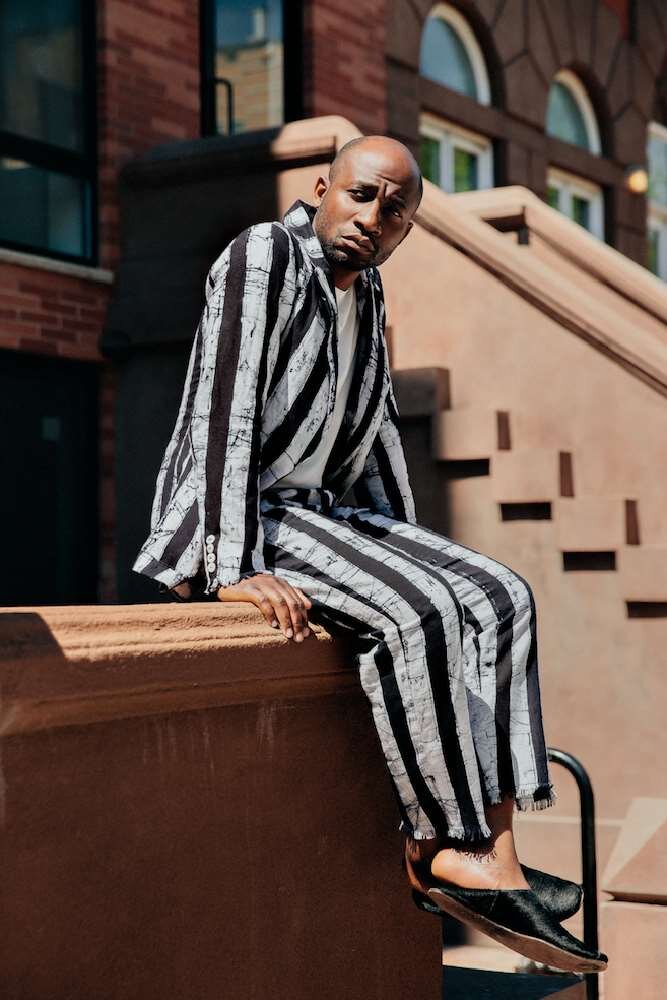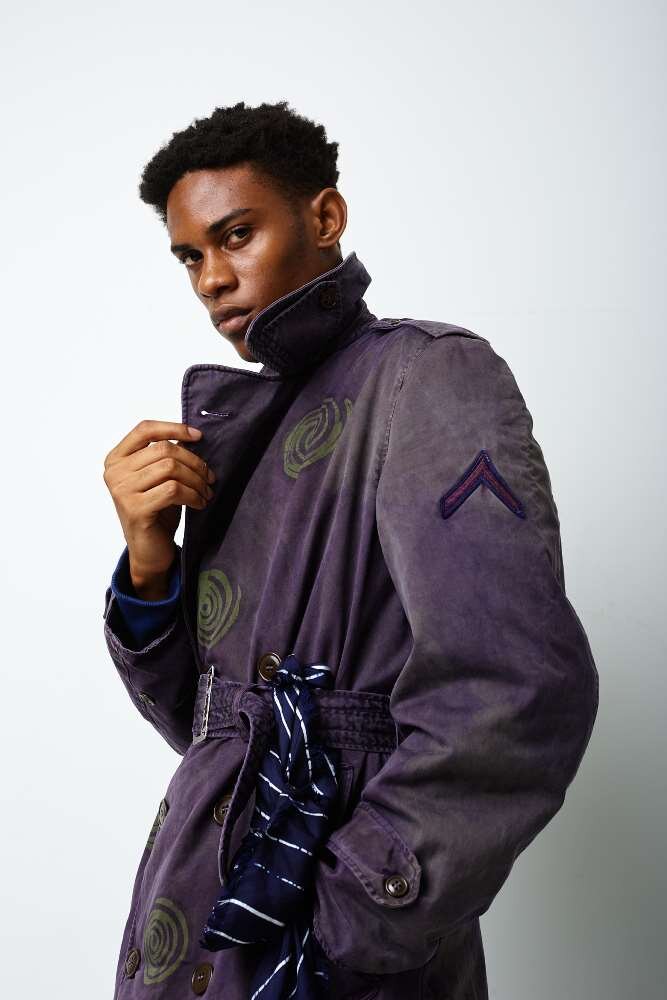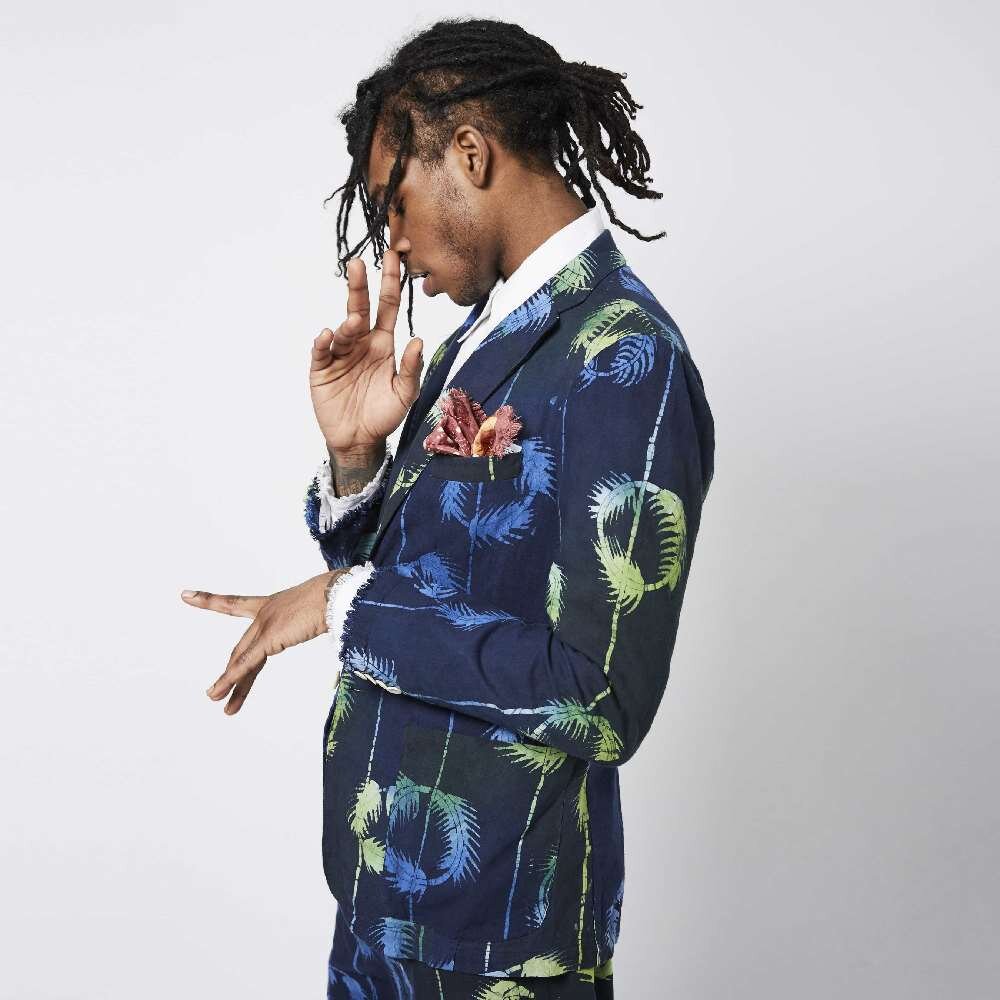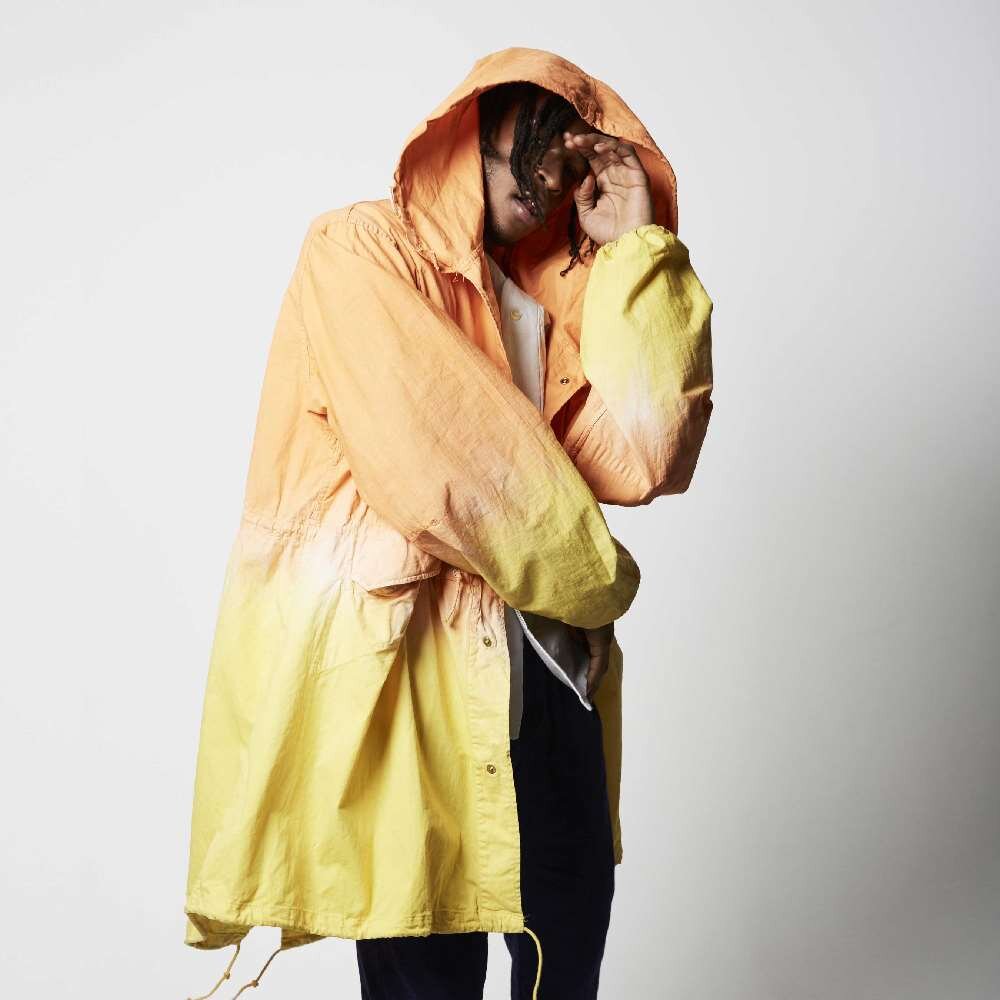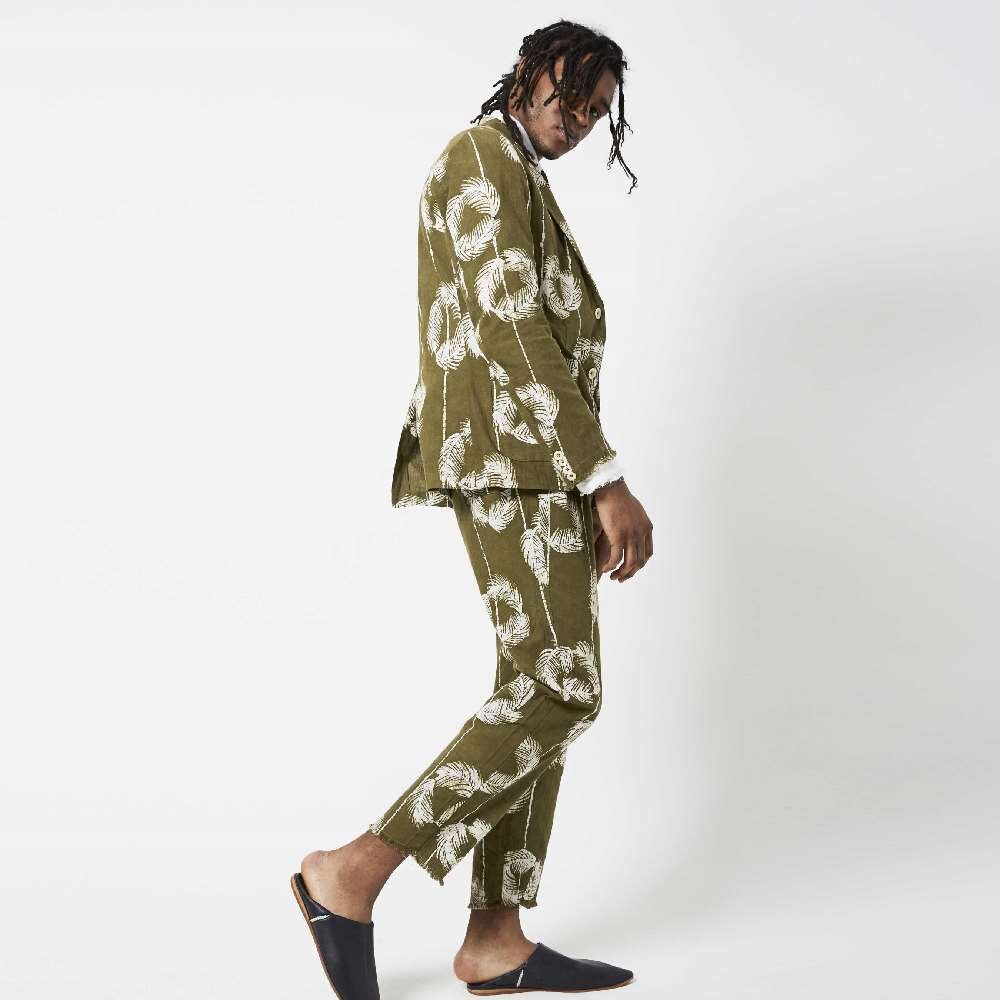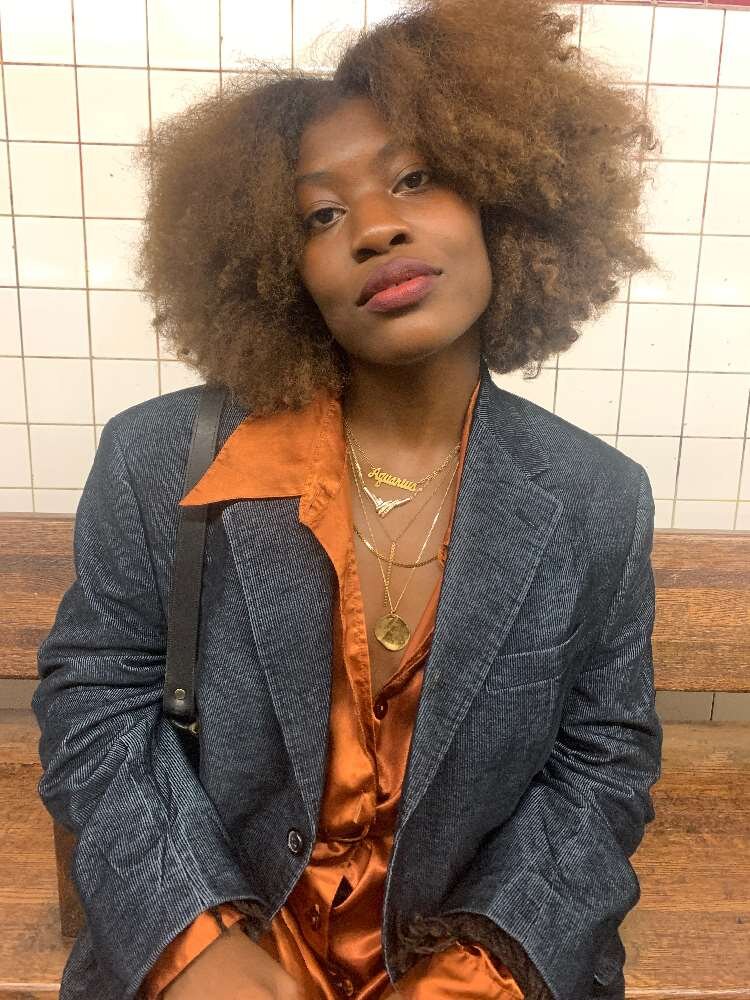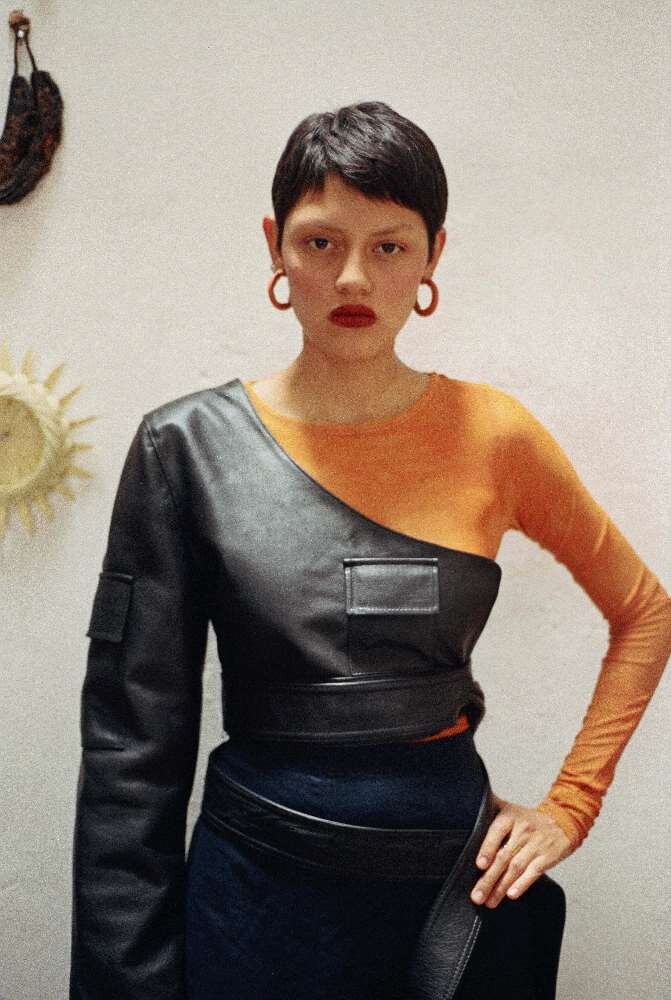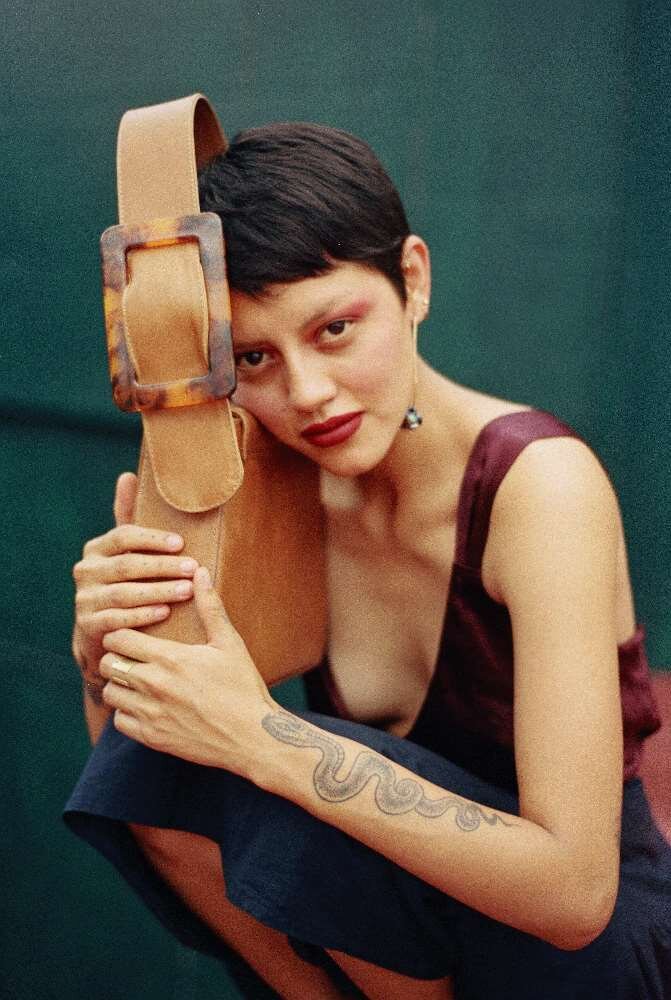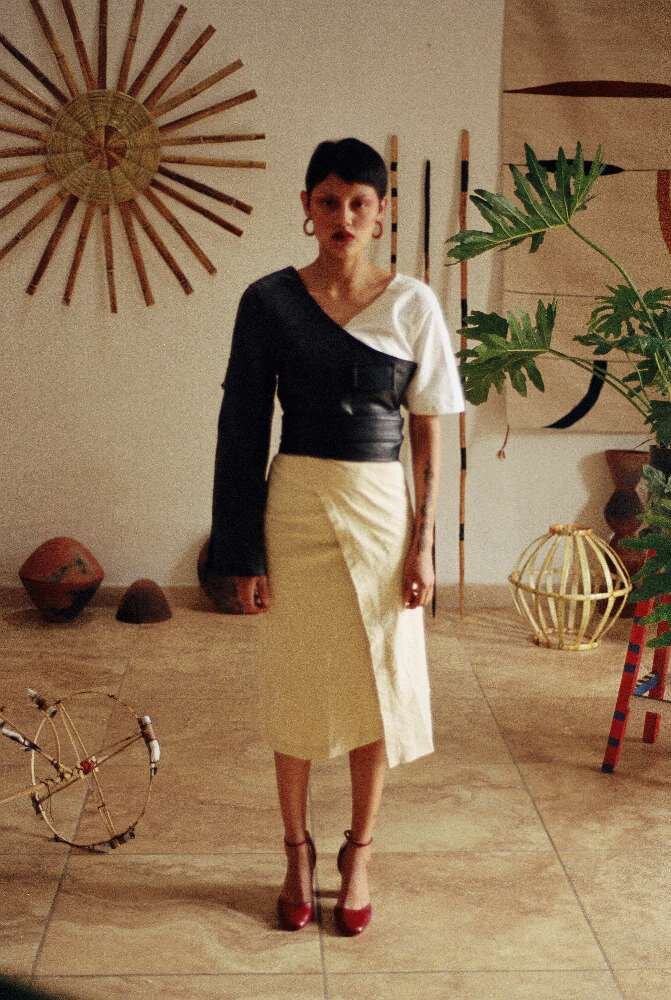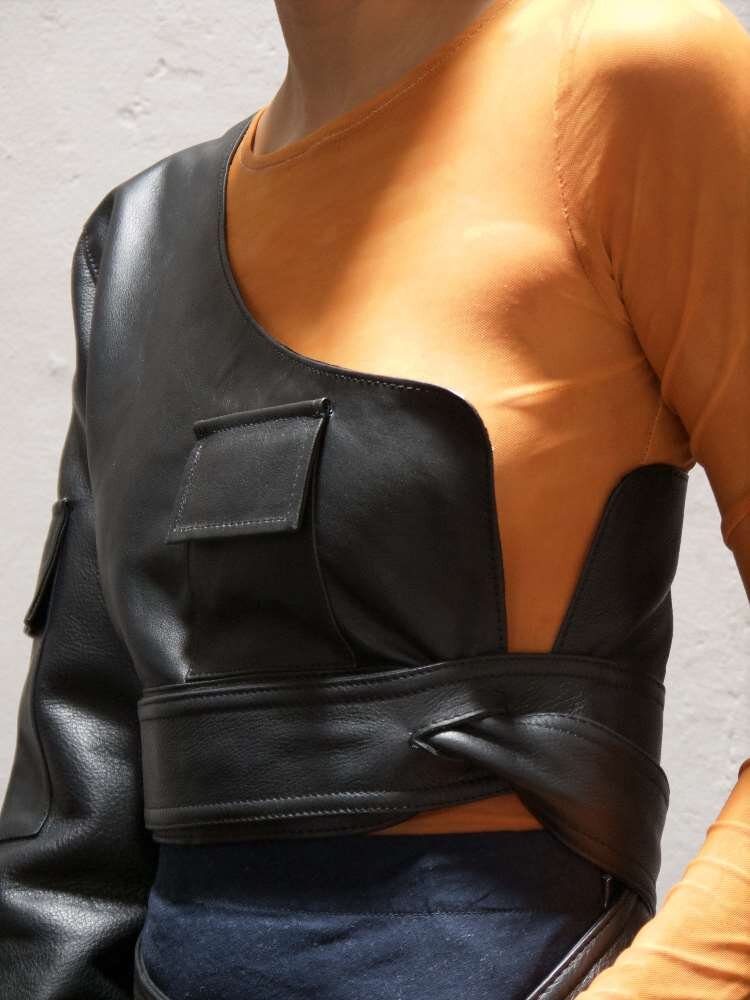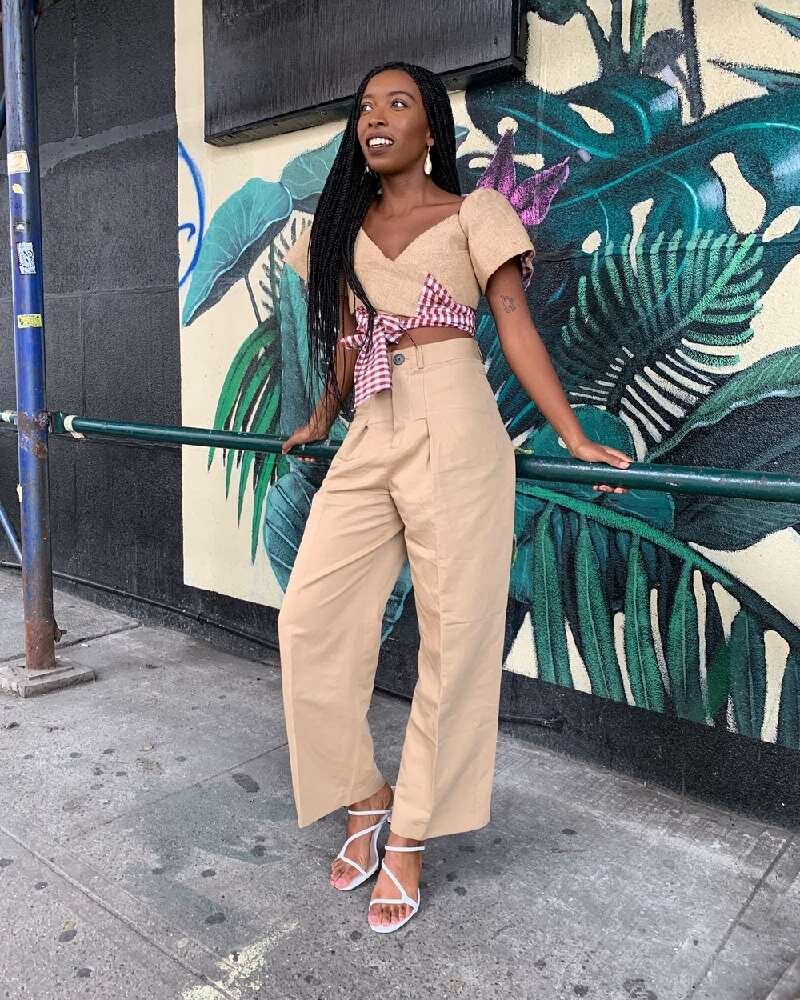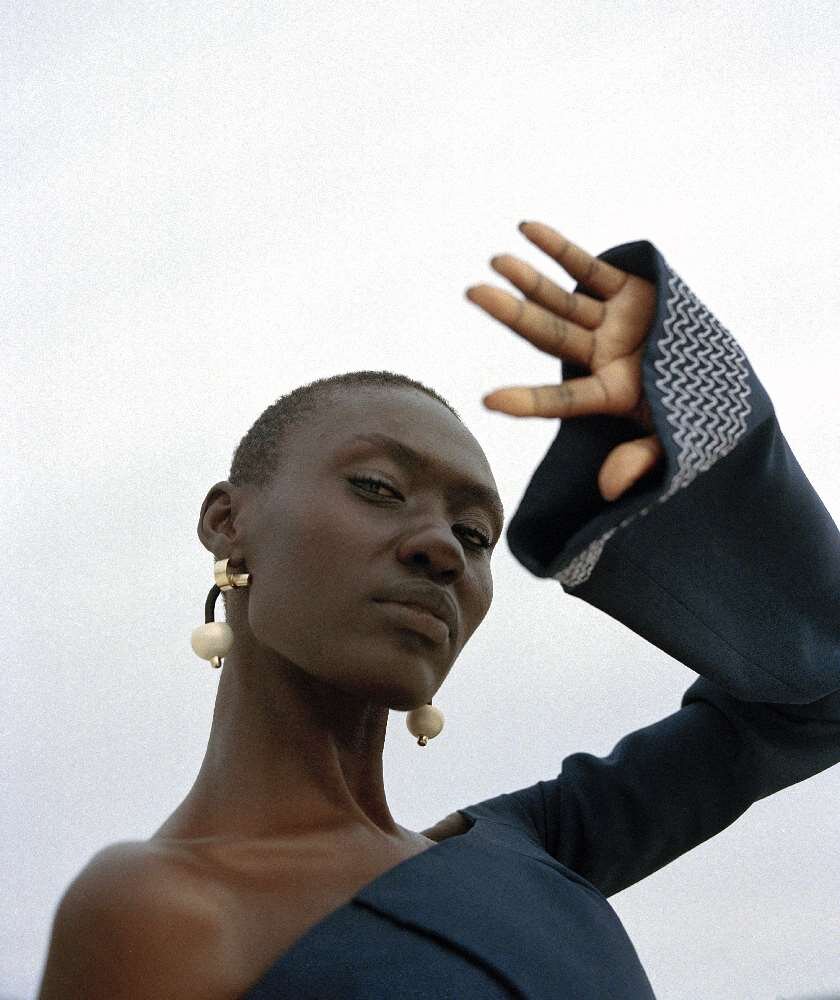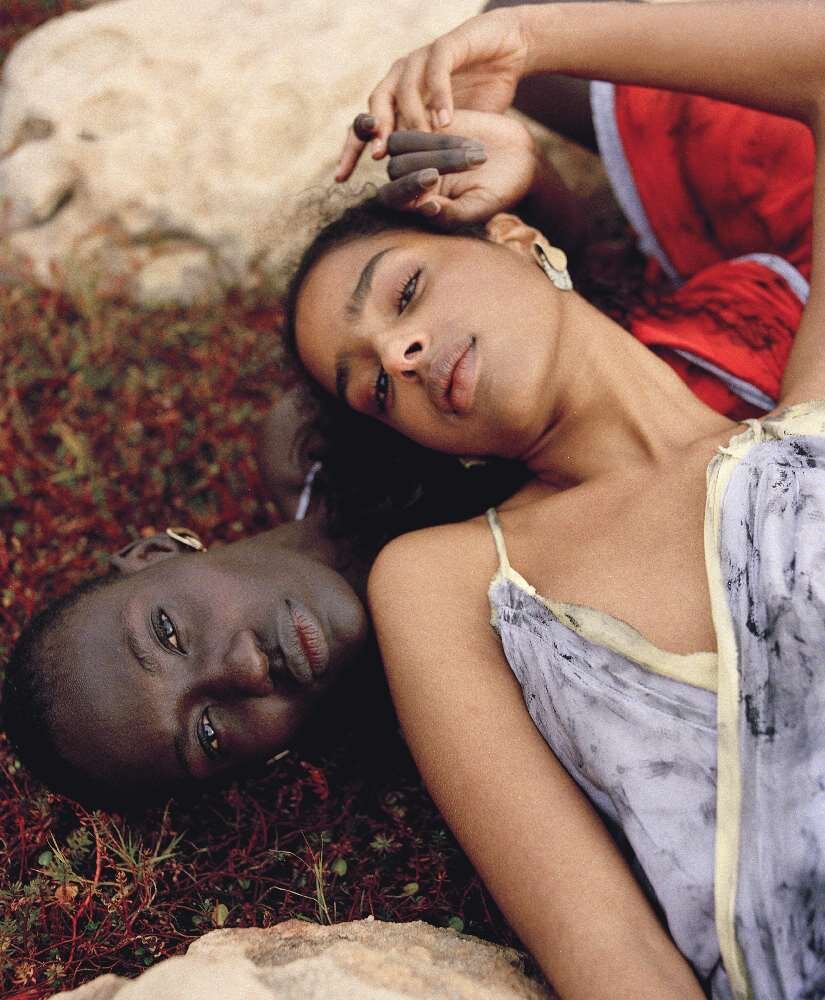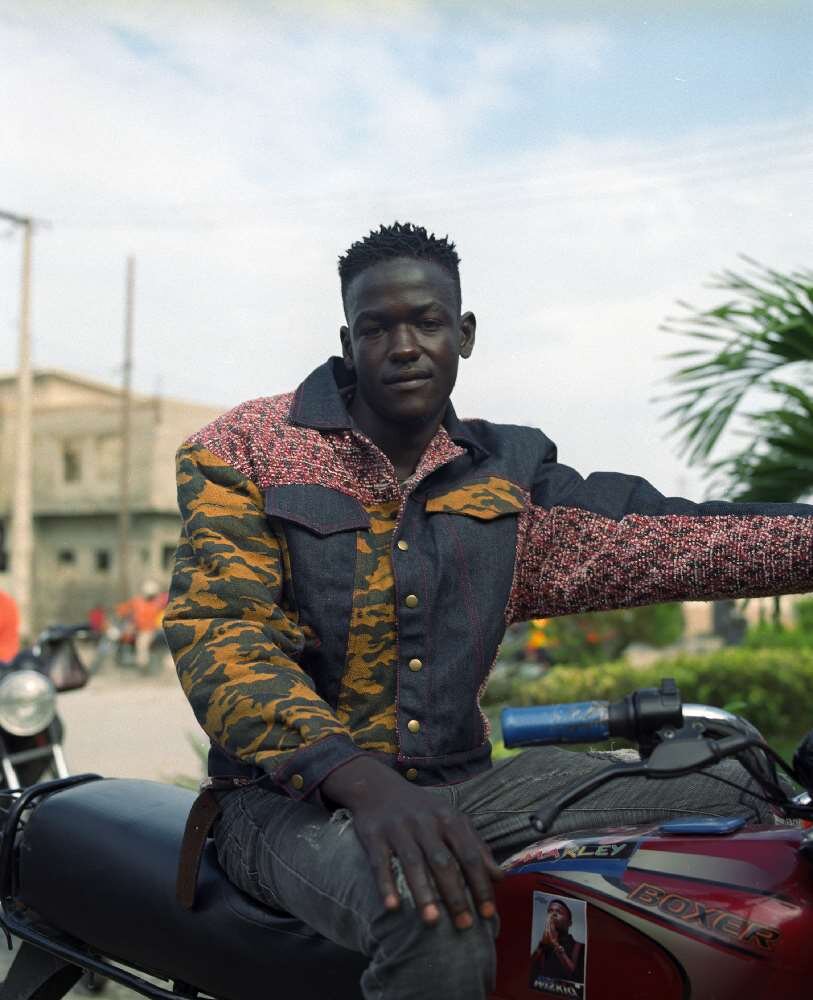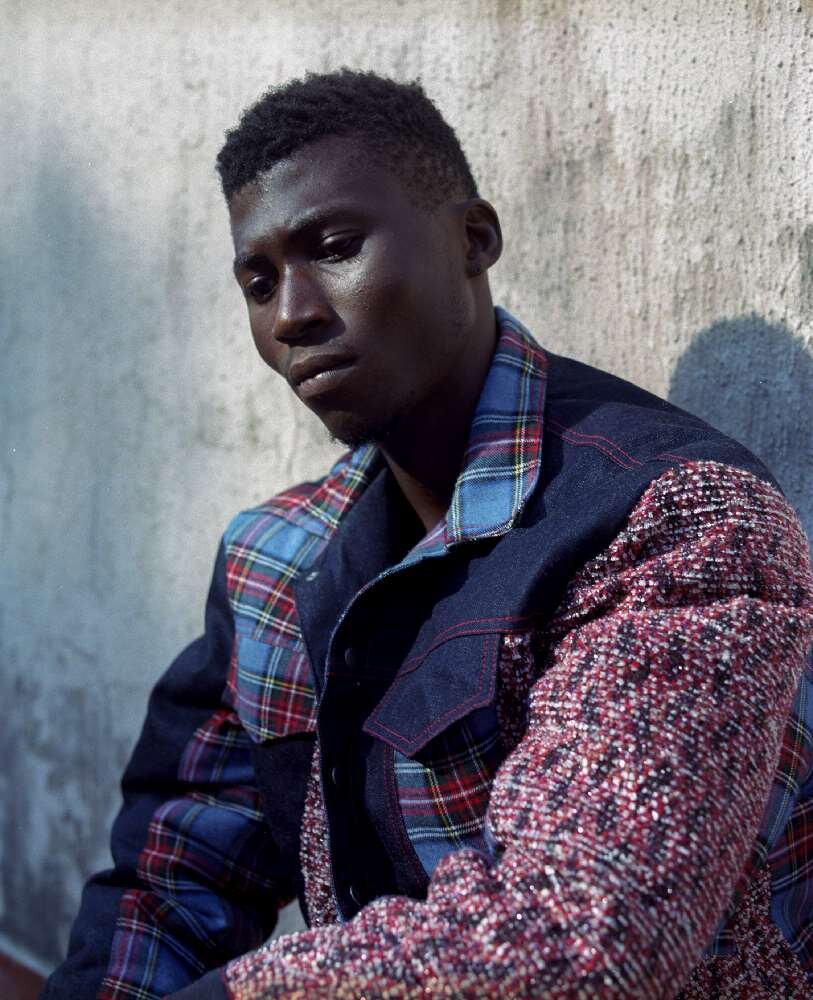In NYC, African luxury experts describe what the Covid-19 crisis has meant for their lives and businesses
“It’s like being on a sinking ship with no paddle. How do you brace for impact?” asks Niyi Okuboyejo, founder of Post-Imperial, in the wake of the Covid-19 pandemic that has hit New York City’s shores. With more than 13,000 deaths to date, most of the city’s inhabitants have put their lives on hold, turning the town best known for its lively streets and grinding rhythm into a shadowy husk of its former self. Okuboyejo was part of that rhythm, a prominent figure in a new wave of fashion professionals with an interest in African-made luxury and a genuine investment in the visibility and economic empowerment of craftspeople on the continent. What was an energetic wave as the likes of Orange Culture and Studio 189 put on vibrant displays at New York Fashion Week in February, now hangs in the balance as trade restrictions, labour disputes and health risks threaten international trade and the fashion industry’s viability. Here, we talk to seven New Yorkers about coping, creating, and charting a way forward.
Niyi Okuboyejo - Post-Imperial
Emigrating from Nigeria to Houston, Texas at 14, Niyi Okuboyejo admits, “The suburbs give me anxiety. You don’t interact with too many people and the normalcy that you’re expected to maintain kills creativity.” He’s currently returned there from NYC with his wife and twin sons, trading in days spent thinking up new adire dye scarves and suit jackets for anime marathons and moments of quiet meditation in a house of nine. “I think there’s an inauthenticity in trying to use this moment to look like you’re more productive than others or that you know what will come next,” he remarks. “This is a black swan event.”
Post-Imperial was conceived out of optimism toward Africa’s future, communicating its message through bold colours and patterns on fabrics hand-painted in Nigeria, then cut and sewn in Kenya. “Our supply chain has abruptly stopped,” he adds. “Some of our vendors were able to deliver our goods, and others left us in limbo. I remain optimistic because I think this moment is a chance for [fashion designers] to reassess our goals.” For Okuboyejo, that reassessment includes a hard look at where he’s placed importance in his company. “For two years, I assigned humans the highest value, now I’m thinking about the ecological impact,” he says. “Covid-19 has forced me to question what contributions I can make to heal the planet, but I don’t want to go into it with thinking there is a magic pill to solve the entire problem.”
Visit Post-Imperial
Sade Mims - Edas
“I’ve experienced a whirlwind of emotions, to say the least,” says Sade Mims, designer of sustainable accessories brand, Edas. “Optimism. Uncertainty. A lack of understanding. Faithfulness. I think optimism holds the most weight - that’s how I’ve always navigated this industry as a woman of colour.” Edas is beloved by it-girls around the planet, boasting supple leather mini bags and conversation-starting apparel and housewares that are both elegant and sustainable. Encouraged by the enterprising women in her orbit and her loyal social following, she’s become a light in the dark, hosting virtual events to boost spirits.
“I’ve been thinking more outside of the box,” she continues. “We recently did a fashion bingo night and moved our events online with a charitable twist. When quarantine started, I connected with a platform called Black Palette that does dinner series and contactless lunch for families with children. I asked my customers to make artistic cards to send with each meal. It’s imperative that I encourage my customer base to see art as a means of sparking joy. Hopefully, down the road, it will also encourage them to come inside [our stores] and shop.”
Edas has seen a lull in sales since the crisis, with orders that generally took four weeks to produce now taking up to eight. “Online has been stagnant, we are making sales, but they’ve decreased as I imagined they would,” she remarks. “Now it’s about channelling my spirit into new campaigns to work with the times.” If her recent posts are any indication, she’s pivoted to a press-forward strategy, sharing her tips for staying well and beautifying while stuck inside, in a number of fashion publications.
Visit Edas
Josef Adamu - creative director and photographer
Photographer Josef Amadu had only been living in the US for a few months when Covid-19 hit. “As much as I have been granted with blessings during this new year, each month has felt like a painful episode of a fictional series,” he wrote in a March blog post that included a story about his landlord increasing rent and his roommate disappearing as Covid-19 began to grip the city. When we speak in late April, he’s notably more resolved. “Luckily, I’ve found ways to empower people and stay creative with my brand agency Sunday School. I’ve been busting out some great ideas, so I won’t complain too much.”
Adamu’s striking images of black bodies at leisure have earned him commissions with Nike, Mic Jenkins, Jazz Carter, Facebook, Teen Vogue and more. With production at a standstill, he’s returning to storytelling to uplift his community. “Education is at the forefront. I’m doing information sessions on Instagram Live and working on a book through Sunday School to teach people how to brand themselves,” he says. He’s also working to make sure black communities hit hardest by the disease in many places stay informed. “Sometimes, it’s up to creatives to teach people what is going on beyond their borders and how it affects their realities.”
As for realities, Adamu says he would like to see the post-Covid-19 world more invested in African narratives. “I think this time allows brands to begin telling distinctly African stories to set their brands apart,” he suggests. “People buy good stories all the time. We see that with the big European brands, why not do it for Africa?”
Visit Josef Amadu
Amira Rasool - The Folklore
Online concept store and wholesale showroom, The Folklore has offered African designers a viable platform to sell their goods and become immersed in international conversations about luxury for over two years. Started by Amira Rasool while she was in college, the platform has won acclaim by premiere publications and become a bellwether for the state of African fashion at events including New York Fashion Week. It made sense then, that when Covid-19 hit, Rasool jumped into action and organised The Drawing Board, a two-day digital summit gathering some of fashion’s top voices to aid in relief efforts, which Nataal had the pleasure of sponsoring.
“Some of my designers can’t fulfil our orders due to shipping restrictions, others can’t even get the textiles they need at home to create their garments,” says Rasool on the way her own business was impacted. Offering tips to established creators like herself as well as more junior attendees, the conference comprised 35-minute masterclass sessions featuring the likes of GQ fashion director Mobolaji Dawodu, journalist Alden Wicker and designer Bubu Ogisi as well as networking sessions and DJ sets.
“Sharing music, engaging with new people, and being a light are all so important now,” she adds. “Our long-term plan is to remain consistent, to be advocates, and to enhance our brands’ global presence. Our methods may change, but our goal hasn't. There's still a demand for African luxury and eager customers.”
Visit The Folklore
Dynasty and Soull Ogun, - L'Enchanteur
L'Enchanteur has always felt other-worldly. These days that resonates warmly. “There are levels to it,” says Dynasty Ogun, co-founder of the brand with her twin sister Soull. “People are in their houses, being asked to dig deep and think. If you’re having trouble staying in, it’s a reflection of your inability to be with yourself. We hear numbers and see images, but people need help if they are going to stay balanced when there's nowhere to go.” The duo has responded to the need with meditation workshops and new wellness-focused episodes of their podcast The Mystical Alchemists of L’Enchanteur.
Beyond community health, they have also found ways to engage potential buyers with their product from a distance. “We’ve started conducting tours of our showroom, something we never thought of doing virtually, and conducting mass consultations through Instagram,” says Soull. “It's introduced us to people who live outside of the city or even out of the country who now see us as accessible.”
While some have had their faith tested, the twins remain hopeful about the city that has rebounded from crisis several times before. “No matter what happens in New York, people are still going to be creative,” continues Soull. “I love seeing how people are doing virtual shoots and finding inspiration in our pieces. It may take time, but it will all come back.”
Visit L'Enchanteur
Folasade Adeoso - digital designer and entrepreneur
“I just did a Wall Street Journal weekend issue cover,” recounts Folasade Adeoso, model, digital designer and entrepreneur, on the line from her apartment. A staple in Harlem’s pan-African creative scene, she has found new uses for her talents as people locked in return to books and newspapers to pass the time. “Last year, I was going to a lot of events and modelling, and now that I'm inside, I get to focus on the artistic side of who I am.”
The surge is especially useful at a time when her other projects, including interior design commissions, are impossible to complete. “I source fabric to reupholster products and furniture,” she adds. “I had a few pieces I was making with a Senegalese tailor, and those things are halted. So much of service-based work has been hurt, and even if you can still go to a store, the human connection is lacking.”
Adeoso is also partner in ‘African super food’ restaurant Teranga at The Africa Center, one of thousands of eateries accounting for more than $2billion in lost revenue due to the crisis. “We see lower sales but we're still doing deliveries to reach out supporters across Harlem and Brooklyn,” she continues. “We also started a Go Fund Me to support local hospitals in upper New York.” In addition to charity, the restaurant has also moved their community initiatives online. “We used to do movies and dance parties so now we're doing this thing called Sunday Cinema, where we're sharing videos that we discovered directed by Africans or people from the diaspora.”
As for the future of fashion, she thinks the global event may encourage members of the diaspora to reconsider the way they work. “I think people will be more collaborative. If two people have been crippled, maybe they can come together to reintroduce new, more sustainable lines - maybe retailers will throw their support behind them earlier. I’m also interested to see if this will shift the African textile industry’s reliance on China. With the way Africans have been treated in China during this crisis, it’s time for us to figure out how to be less dependent on people who don’t treat us well.”
Visit Folasade Adeoso
Derin Masha - creative consultant
In 2019, creative consultant Derin Masha whose thickset resume includes stops at L Brands, IPR London, Tuza NY, and Orange Culture (where she currently serves as the LVMH finalist’s brand manager), established sanctum in New York’s storied garment district. “I set up a studio so I could get more familiar with the pattern making process and vendors,” she says. “I was just starting to help my clients strategise [based on what I learned]. Now, Covid-19 is propelling us to try alternative solutions.” To Masha, those solutions include a focus on quality. “Staying at home isn’t ideal but I’ve been able to sit down and plan for when things get back to normal. I think the world will need designers to stop aspiring to produce mass clothing for profit's sake and to start focusing on creating high-quality, sustainable pieces that are affordable.”
As she stays inside listening to Minnie Ripperton albums and tuning into the digital happy hours and game tournaments with her favourite brands, Masha’s mind is also tuned to the possibilities opening up for local brands during the global pause. “At Orange Culture, we’re struck by the idea that people in Nigeria may start to pay more attention to the local manufacturing processes and show greater appreciation to local brands,” Masha comments. “Instead of waiting to see what Orange Culture is doing at London or New York Fashion Week, maybe people will see that you don’t need to travel outside of Africa to engage with African luxury.”
Visit Derin Masha
Words Amber Nicole Alston
Published on 13/05/2020


